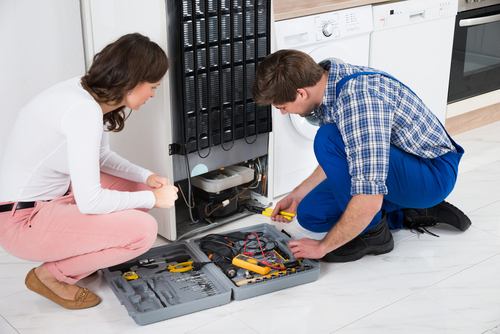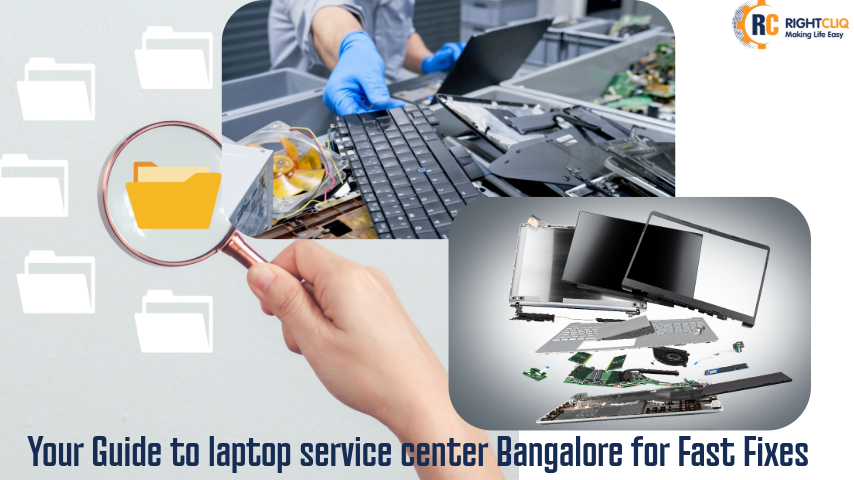Tips and Tricks for Refrigerator Repairing Service

tips for refrigerator repair service
To maintain your Refrigerator on time follow these Guidelines for Refrigerator Repairing. Your Refrigerator runs 24x7 all year long, it is probably the most hardworking appliance in your home. It safely stores vegetables, fruits, dairy products, chocolates, juices, water, leftovers and many more items of your home.
If your refrigerator breakdowns, it will lead to spoilt fruits and milk. So, to repair this here we have given you some tips and Guideline for Refrigerator Repair Service for all brands.
Guidelines for Refrigerator Repairing
Follow these easy Guidelines for Refrigerator Repairing:-
1. Understanding the Basics of Refrigerators
Before attempting any repairs, it's crucial to understand how refrigerators work and the common issues they may encounter. Refrigerators come in various types, including top-freezer, bottom-freezer, side-by-side, and French door models. Each type has its own set of components and potential problems.
2. Safety Precautions Before Repairing
Safety should always be your top priority when repairing appliances like refrigerators. Before starting any repairs, ensure you unplug the refrigerator from the power source to avoid electric shocks. Additionally, wear appropriate safety gear such as gloves and safety goggles, and use insulated tools to prevent accidents.
3. Troubleshooting Refrigerator Problems
When your refrigerator malfunctions, it's essential to diagnose the problem accurately. Common issues include inadequate cooling, leaks, strange noises, and faulty door seals. By identifying the symptoms, you can narrow down the possible causes and take appropriate action.
4. DIY Refrigerator Repair Techniques
Many refrigerator problems can be resolved through DIY repair techniques. For instance, cleaning the condenser coils regularly can improve cooling efficiency, while replacing worn-out door seals can prevent air leaks. Simple tasks like changing light bulbs and filters can also enhance the refrigerator's performance.
5. When to Seek Professional Help
While DIY repairs are cost-effective, some issues may require professional intervention. Complex electrical problems and refrigerant leaks, for example, should be addressed by experienced technicians to prevent further damage and ensure safety.
6. Cost Considerations for Repairing
Before embarking on any repairs, consider the cost-effectiveness of fixing versus replacing your refrigerator. Evaluate the extent of the damage, the age of the appliance, and the cost of replacement parts to make an informed decision.
7. Maintenance Tips to Prevent Future Issues
To prolong the lifespan of your refrigerator and minimize the need for repairs, practice regular maintenance of refrigerator. This includes cleaning and defrosting the refrigerator, checking temperature settings, and inspecting for signs of wear and tear.
Conclusion
Knowing how to troubleshoot and repair your refrigerator can save you time and money in the long run. By following these tips and guidelines, you can address common issues effectively and ensure your refrigerator operates efficiently for years to come.
FAQs
1. How often should I clean the condenser coils of my refrigerator?
Cleaning the condenser coils twice a year is recommended to maintain optimal cooling efficiency.
2. Why is my refrigerator leaking water?
A leaking refrigerator could be due to a clogged defrost drain or a faulty water inlet valve. Check these components for any issues and replace them if necessary.
3. Can I repair a broken door seal on my refrigerator myself?
Yes, replacing a worn-out door seal is a relatively simple DIY task. You can purchase a replacement seal from a hardware store and follow the manufacturer's instructions for installation.
4. Is it safe to repair electrical components in my refrigerator?
While some electrical repairs can be done safely by DIY enthusiasts, it's best to leave complex electrical issues to professional technicians to avoid accidents and ensure proper repair.















